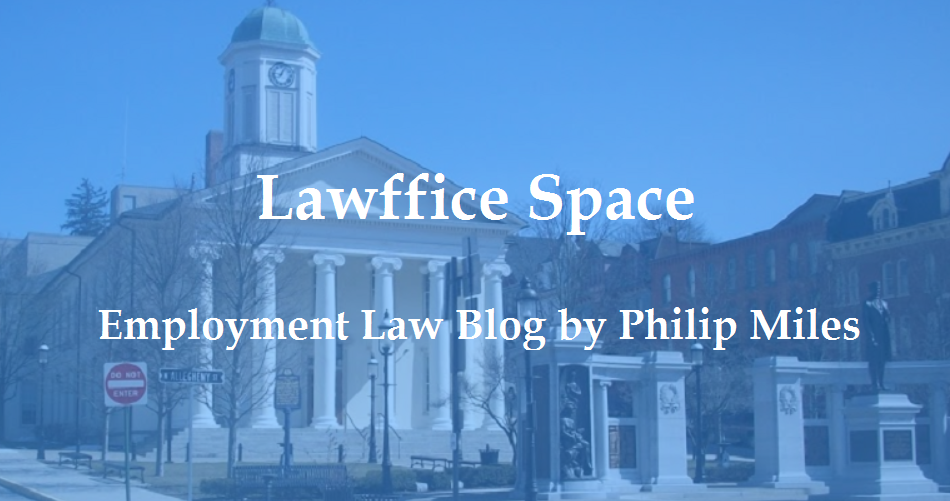 |
| MD PA in Harrisburg |
UPMC obtained her criminal history using ePatch, "a third-party website that provides criminal history information in Pennsylvania." Guess what? The charges still showed up as felonies. So, UPMC rescinded the offer of employment. UPMC claims they rescinded the employment offer because she lied about her charges (falsely claiming they were misdemeanors instead of felonies).
The employee filed a bevy of claims - for blogging purposes, I'm just going to focus on the CHRIA and FCRA claims. CHRIA allows employers to consider convictions (not arrests), and only to the extent they relate to the applicant's suitability for the position. Here, the employee claims that UPMC relied on her charges which have yet to be adjudicated - a violation of the CHRIA.
She also claims that UPMC got her records without providing the FCRA-required notices. Employers must provide notice to the employee that they are getting a "consumer report" from a "consumer reporting agency." And, they must also provide notice if their decision not to hire is based on such a report. It may not be obvious that the "credit" reporting act defines a "consumer report" to include criminal background checks - but it does. The Court also concluded that ePatch was a consumer reporting agency because it regularly gathers criminal history information for "fees, dues, or on a cooperative non-profit basis."
Ultimately, the Court allowed the employee's claims to go forward. This was just a motion to dismiss, meaning the Court assumes that the plaintiff's allegations are true. It sounds like there are plenty of factual disputes that have yet to be resolved. Nevertheless, a good reminder to watch the technicalities when making hiring decisions based on criminal records.

No comments:
Post a Comment